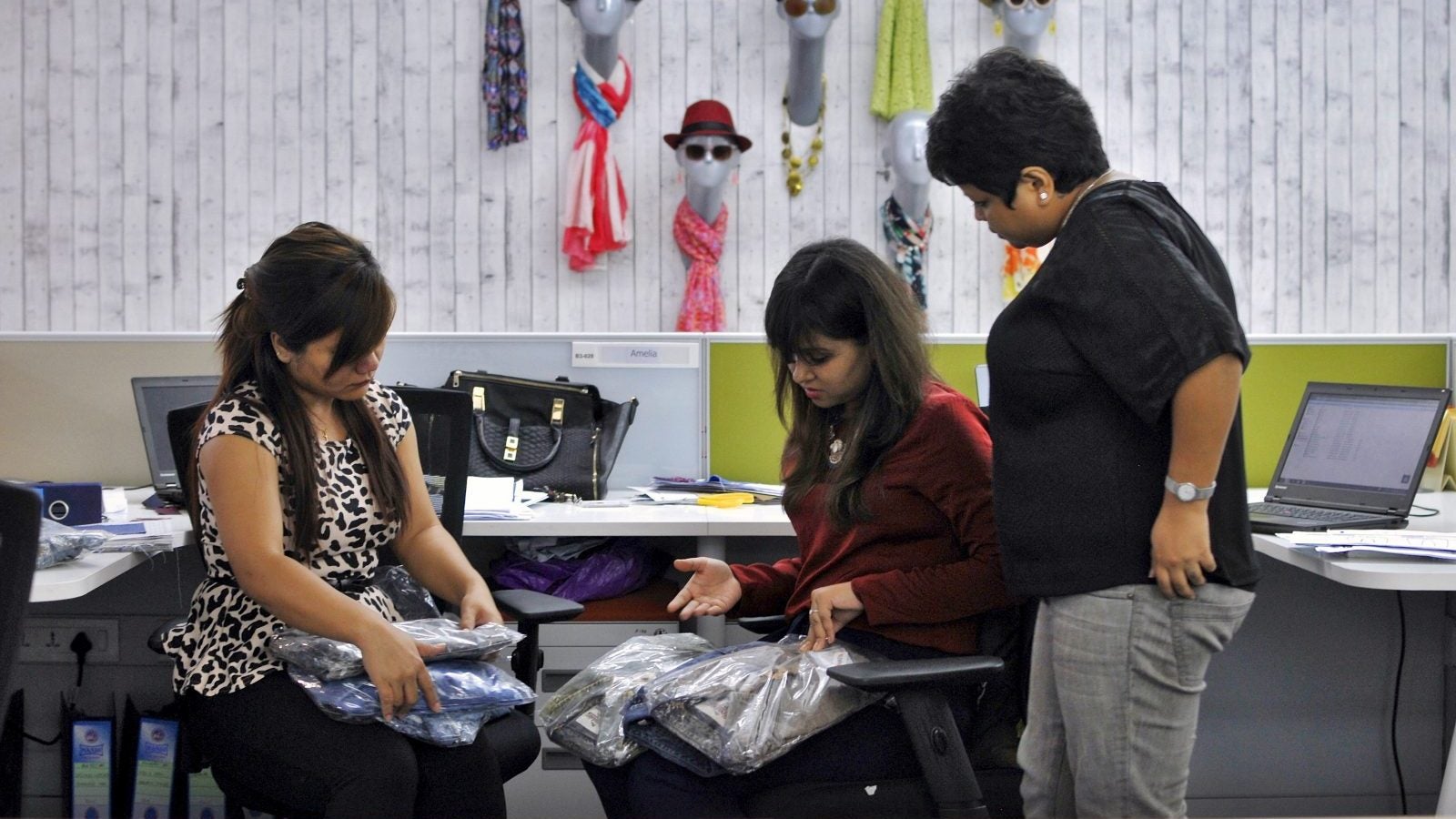Rent a dream: How Indians are living it up without splurging
From Versace bags to Prada shoes and even lehengas designed by Ritu Kumar, Indians are living their dreams at a fraction of the products’ actual cost—thanks to the boom in rental startups in the country.


From Versace bags to Prada shoes and even lehengas designed by Ritu Kumar, Indians are living their dreams at a fraction of the products’ actual cost—thanks to the boom in rental startups in the country.
A horde of such startups has mushroomed in India in the past few years, letting users rent, use, and return products at as low as 5% of the product’s actual cost. While it was initially limited to clothes and accessories, now almost everything is available on rent for any duration.
The total market size for India’s rental businesses is hard to ascertain as many categories remain fragmented. But experts cumulatively peg three of the top segments—furniture, electronic appliances, and motorbikes—at over $1.5 billion.
Several of these startups are backed by marquee investors. For instance, clothes and accessories rental website Flyrobe raised $5.3 million from IDG Ventures and Sequoia Capital, among others. Furlenco, which deals with furniture, has raised $30 million from Lightbox Ventures and Axis Capital. Bike rental website Wheelstreet has received $120,000 from Y Combinator and has also been incubated at the Silicon Valley accelerator.
Why rent?
Affordability is the main reason for the segment’s popularity—a Rs169,200 ($2,600) Prada bag can be rented for just Rs13,499 for four days.
It’s a great solution for those who may want to keep up with trends even if they can’t afford it.
“There is a 20% increase (in retail price) year-on-year on pretty much every brand, and the choices are increasing…today one trend is hot and in the next season, something else. So the problem is that nobody (customers) really knows what they should invest in,” said Jashank Bhandari, co-founder of Prendo, a luxury brand rental portal scheduled to launch in a few weeks.
Renting is even replacing EMIs, particularly for items of everyday use.
“In the first four-five years of your working life, you don’t want to get tied down with a bunch of assets, which restrict your easy mobility. Relocation is a hassle, maintenance is a hassle,” said Geetansh Bamania, CEO of Mumbai-based Rentomojo. His firm rents out furniture, home appliances, and motorbikes. “Our rentals are much cheaper than EMIs. And here you can walk out whenever you want,” he said.
Many also choose renting because of a lack of storage space, Manan Shah, founder of Bragpacker, which deals in luggage, travel gear, and camping equipment, said.
In certain categories like toys, it is a way to try before buying. “You don’t know when the child will stop using a product,” Sanjeev Mohan, chief growth officer of MyPleyBox, a company that rents out baby products such as walkers and high chairs, said. “If you end up buying a product and it is not useful, what’ll you do with the product after spending on it?”
Finding the right business model
While renting is pocket-friendly for consumers, it is capital-intensive.
Most startups purchase the items they wish to list on their websites. Then they spend on storage and maintenance. Besides, logistics costs are higher than those of e-tailers as they also need to deliver and pick up items.
Companies must also handle damages and loss, though they often seek security deposits, roughly 20% of the item’s retail price.
“For minor damages like a small spill or a thread pull, we don’t charge anything. But if it is a major damage or if the product is lost, we deduct from the security deposit,” Mishra of Flyrobe said.
These challenges have led to several casualties. WhatsOnRent.com, for instance, shut operations in November 2016 due to its inability to raise more funds. It also returned 50% of the seed funding it had received from individual investors. Another rental startup, Blinge, shut shop around that time despite raising funds from angel investor Anupam Mittal and Flipkart veteran Ankit Nagori.
To reduce costs and risks, companies like Flyrobe and jewellery rental startup Eves24 are now experimenting with a marketplace-like model, sourcing inventory from designers or wholesalers and only handling maintenance and logistics.
They are also setting up stores to offer the touch and feel experience. Flyrobe, for one, already has five outlets in Delhi, Mumbai, and Hyderabad, and plans to open more in Bengaluru and Pune.